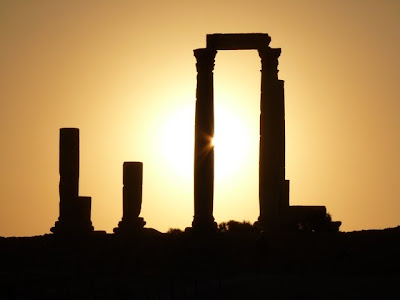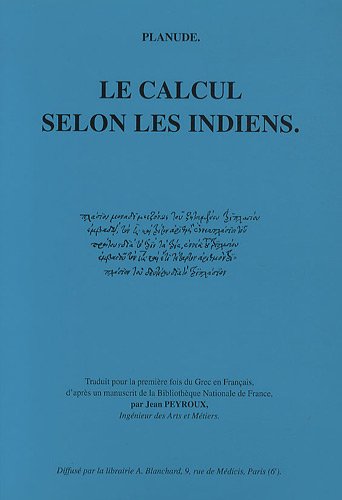
Posted on 08/11/2013 4:38:30 PM PDT by Enza Ferreri

Continuing on the theme of what Muslims did - or more likely did not do - for the world, there is a widespread misconception that they "invented algebra". Maybe this fallacy is due to the fact that "algebra" is a word of Arabic origin, but historical questions are not solved by etymological answers.
Yes, the English word "algebra" derives from the Arabic. So does "sugar" (from the Arabic "sukkar") but that doesn't mean that Muslims invented sugar.
The word "algebra" stems from the Arabic word "al-jabr", from the name of the treatise Book on Addition and Subtraction after the Method of the Indians written by the 9th-century Persian mathematician Muhammad ibn Mūsā al-Khwārizmī, who translated, formalized and commented on ancient Indian and Greek works.
It is even doubtful whether al-Khwārizmī was really a Muslim. The Wikipedia entry on him says:
Regarding al-Khwārizmī's religion, Toomer writes:In all likelihood he was a Zoroastrian who was forced to convert (or die) by Muslim rulers because Persia had been conquered by the Islamic armies and that was what Muslims did (and still do wherever they can). That could easily explain the "pious preface to al-Khwārizmī's Algebra"."Another epithet given to him by al-Ṭabarī, "al-Majūsī," would seem to indicate that he was an adherent of the old Zoroastrian religion. This would still have been possible at that time for a man of Iranian origin, but the pious preface to al-Khwārizmī's Algebra shows that he was an orthodox Muslim, so al-Ṭabarī's epithet could mean no more than that his forebears, and perhaps he in his youth, had been Zoroastrians."
Wikipedia also says:
In Renaissance Europe, he [al-Khwārizmī] was considered the original inventor of algebra, although it is now known that his work is based on older Indian or Greek sources.There is archaeological evidence that the roots of algebra date back to the ancient Babylonians, then developed in Egypt and Greece. The Chinese and even more the Indians also advanced algebra and wrote important works on the subject.
The Alexandrian Greek mathematician Diophantus (3rd century AD), sometimes called "the father of algebra", wrote a series of books, called Arithmetica, dealing with solving algebraic equations. Another Hellenistic mathematician who contributed to the progress of algebra was Hero of Alexandria, as did the Indian Brahmagupta in his book Brahmasphutasiddhanta.
With the Italian Leonardo Pisano (known as Leonardo Fibonacci, as he was the son of Bonacci) in the 13th century, another Italian mathematician, Girolamo Cardano, author in 1545 of the 40-chapter masterpiece Ars magna ("The great art"), and the late-16th-century French mathematician François Viète, we move from the prehistory of algebra to the beginning of the classical discipline of algebra.
Even Bertrand Russell, who in no way is a critic of the Islamic world, writes in the Second Volume of The History of Western Philosophy:
Arabic philosophy is not important as original thought. Men like Avicenna and Averroes are essentially commentators. Speaking generally, the views of the more scientific philosophers come from Aristotle and the Neoplatonists in logic and metaphysics, from Galen in medicine, from Greek and Indian sources in mathematics and astronomy, and among mystics religious philosophy has also an admixture of old Persian beliefs. Writers in Arabic showed some originality in mathematics and in chemistry--in the latter case, as an incidental result of alchemical researches.You can see that to say that Muslims invented or pioneered algebra is a gross misrepresentation.Mohammedan civilization in its great days was admirable in the arts and in many technical ways, but it showed no capacity for independent speculation in theoretical matters. Its importance, which must not be underrated, is as a transmitter. Between ancient and modern European civilization, the dark ages intervened. The Mohammedans and the Byzantines, while lacking the intellectual energy required for innovation, preserved the apparatus of civilization--education, books, and learned leisure. Both stimulated the West when it emerged from barbarism--the Mohammedans chiefly in the thirteenth century, the Byzantines chiefly in the fifteenth. In each case the stimulus produced new thought better than any produced by the transmitters--in the one case scholasticism, in the other the Renaissance (which however had other causes also).
In conclusion, there are various attempts at historical revisionism as far as Islamic contributions to the world are concerned. These attempts are more political propaganda than academic scholarship. After all, taqiyya, lying to the infidels to advance Allah's cause, is permitted, and even prescribed, to Muslims, and jihad does not just consist in violent aggression or terror attacks: it can be gradual, by stealth, through indoctrination and false reassurance.
Correct
Anyone who watched some of the old Westerns? Or Philip Sheridan.
If you mean Khalil Greene, he can't go to Mecca...he's a member of the Baha'i faith.
The American Indians invented algebra? Who knew? No wonder I can’t understand those symbols on the side of teepees!
The Great Spirit would be so proud ... :)
Sirius, Arcturus, Spica, Regulus, Antares, Polaris, Procyon, the Pleiades, the Hyades, Castor and Pollux are all Greek or Latin names. The constellations have Greek or Latin names, even those invented in recent centuries like Telescopium or Octans. But I think the majority of the bright stars are now known by Arabic names (sometimes garbled)—Vega, Deneb, Altair, Rigel, etc.—an accident of the fact that the medieval Western Europeans obtained Ptolemy’s work via the Arabs.
Note: this topic is from 8/11/2013.Thanks Enza Ferreri.
There is archaeological evidence that the roots of algebra date back to the ancient Babylonians, then developed in Egypt and Greece. The Chinese and even more the Indians also advanced algebra and wrote important works on the subject. The Alexandrian Greek mathematician Diophantus (3rd century AD), sometimes called "the father of algebra", wrote a series of books, called Arithmetica, dealing with solving algebraic equations. Another Hellenistic mathematician who contributed to the progress of algebra was Hero of Alexandria, as did the Indian Brahmagupta in his book Brahmasphutasiddhanta. With the Italian Leonardo Pisano (known as Leonardo Fibonacci, as he was the son of Bonacci) in the 13th century, another Italian mathematician, Girolamo Cardano, author in 1545 of the 40-chapter masterpiece Ars magna ("The great art"), and the late-16th-century French mathematician Francois Viete, we move from the prehistory of algebra to the beginning of the classical discipline of algebra.

Custer wore arrow shirts. It’s true.
ZERO [0], was invented originally by Babylonians.
KhwÄrizmÄ«e (a Persian), perfected earlier concept (by Babylonians), for algebra. And, yes, he was a Persian of Zoroastrian faith.
There is no “Islamic civilisation”, only converts of other religions to Islam, mostly converting because they had to.
But, in the Arabic text they just say Arabic numerals, in the Iranian version they say that the numerals came from India but were introduced by Iranian Muslim mathematicians.
In the Indian text they are called Indian Digitss. It is as well mentioned that in the Quraysh tribe (the tribe of Mohammad) only seven persons could write.
Thanks AdmSmith.
Just saw your ping to me here.
Here are 2 interesting and related links:
http://www.sciencemag.org/news/2016/01/math-whizzes-ancient-babylon-figured-out-forerunner-calculus
https://explorable.com/mesopotamian-astronomy
Another link in tandem with the ones I previously posted.
Like to know your views. Though to me seems very clear Babylonians at the very least understood the concept of zero [0] way before Indians, Chinese or Persians — most definitely way before Islam was conceived in Arabia.
Though the original Babylonian concept was later perfected by Khawarazmi. That’s what we know today.
http://gwydir.demon.co.uk/jo/numbers/babylon/
Bfl
>>There’s nothing wrong with Arabs intellectually, but Islam stifles them.
Actually, that’s not true, after centuries of cousin marriage. Do some searches on Middle Eastern consanguinity and read some of the abstracts of the scholarly papers on the subject.
Oh, and then you add in the Islamic stifling, and you get the modern Middle East.
From wiki
The origin of the modern decimal-based place value notation can be traced to the Aryabhatiya (5th century Indian mathematician), which states "thanat sthanadaaguaa syat "from place to place each is ten times the preceding"
The rules governing the use of zero appeared for the first time in the Brahmasputha Siddhanta (7th century). This work considers not only zero, but negative numbers, and the algebraic rules for the elementary operations of arithmetic with such numbers. In some instances, his rules differ from the modern standard, specifically the definition of the value of zero divided by zero as zero.
They're not. They're Sanskrit.
Though Sanskrit (Indian) is new, comparatively.
Cuneiform is much older, non Semitic, and was used by Sumerians, Babylonians, Persians (Cyrus's Declaration was in Cuneiform, Not Sanskrit) etc.. for their written work, numbers inclusive. Example below for zero [0].

See links in 72 & in 73, specifically.
We should make sure that there are copies of these tablets. The probability is close to 1 that Daesh/ISIL will destroy them.
Disclaimer: Opinions posted on Free Republic are those of the individual posters and do not necessarily represent the opinion of Free Republic or its management. All materials posted herein are protected by copyright law and the exemption for fair use of copyrighted works.